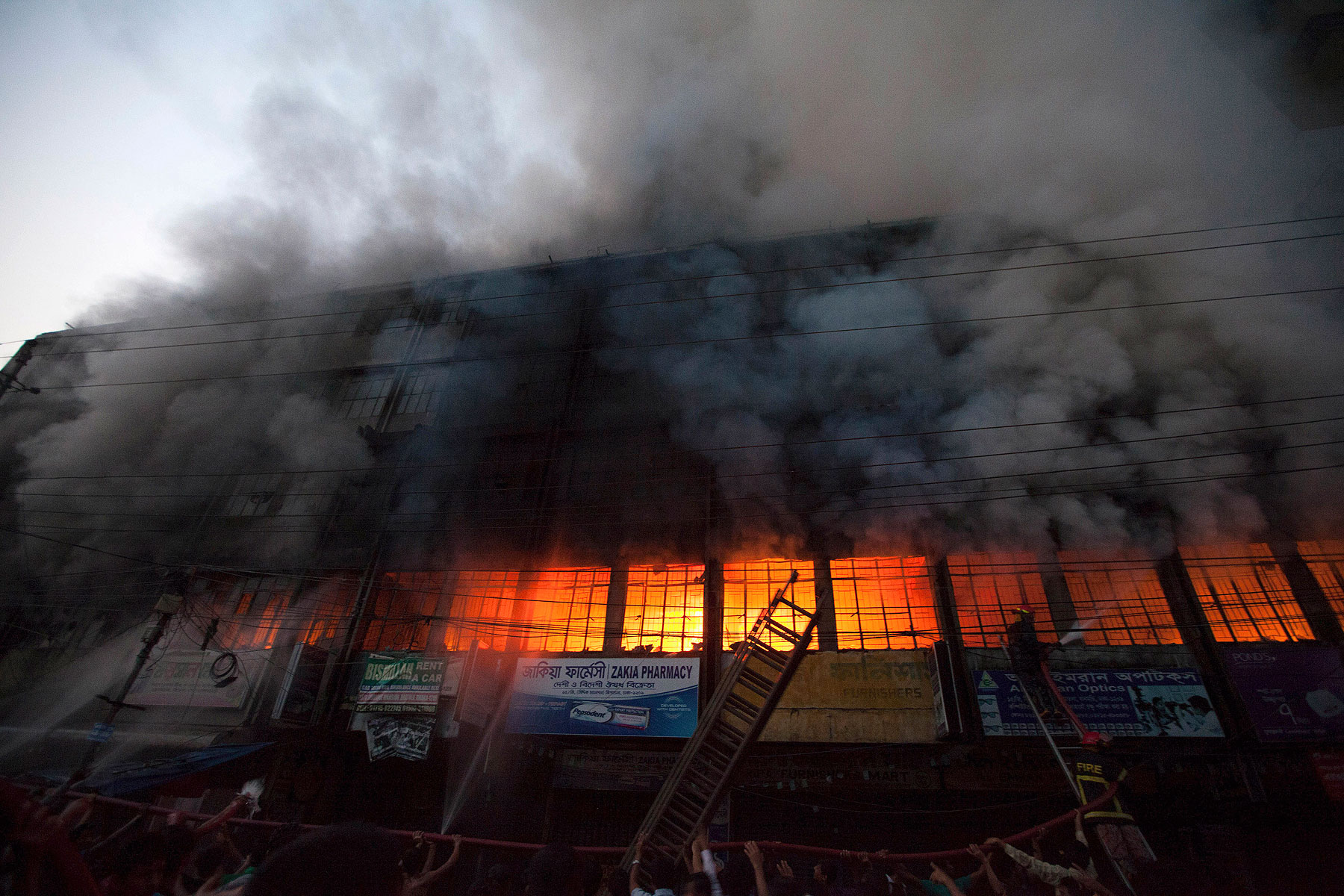
Overloaded ceilings, exposed cables, too few fire alarms and sprinklers, and locked emergency exits are just a few of the hazards that international safety inspectors came across while surveying the ten most perilous garment factories for workers in Bangladesh.
The resultant report by Bangladesh Accord Foundation, a group of 150 clothing brands and retailers from more than 20 countries, was published on Tuesday and led to the temporary closure of two firms, reports Reuters.
Ever since the collapse of the Rana Plaza factory on the outskirts of the capital Dhaka, claiming at least 1,129 lives, mostly women, dismal working conditions in the country’s almost $22 billion apparel industry has been under global scrutiny.
Around 1,500 factories in total are due to be inspected by early September. Major Western high street brands including M&S, Walmart and H&M source from inside the South Asian nation.
“The reports do not highlight any issues of a similar magnitude to those which caused the collapse of the Rana Plaza building in April 2013,” Accord said in a statement. However, “they do identify a number of issues to be addressed and explain the steps to be taken to resolve them. Some of these steps are already underway.”
Shahidullah Azim, vice president of Bangladesh Garment Manufacturers and Exporters Association, welcomed the report as a way to get the vital industry back on track. Factory owners have been hit in recent months by worker protests and flash strikes to demanding better pay and safer working conditions.
“These disasters were a wake up call for us too, as some of these factories have not been upgraded in [as long as] a decade, some even three decades,” says Shahidullah. “We provide the most cost effective solution to global retailers and that is why they are taking pains to sort the industry out.”
Workers, however, remain wary.
“The challenge now will be to implement the findings,” Nazma Akhter, president of the Sommilito Garments Sramik Federation (Union of Garment Workers Association) and a long time labor activist, tells TIME. “When you treat workers as cheap labor it’s difficult to care for them. The longterm solution to this is simply responsible entrepreneurship.”
More Must-Reads from TIME
- Why Trump’s Message Worked on Latino Men
- What Trump’s Win Could Mean for Housing
- The 100 Must-Read Books of 2024
- Sleep Doctors Share the 1 Tip That’s Changed Their Lives
- Column: Let’s Bring Back Romance
- What It’s Like to Have Long COVID As a Kid
- FX’s Say Nothing Is the Must-Watch Political Thriller of 2024
- Merle Bombardieri Is Helping People Make the Baby Decision
Contact us at letters@time.com